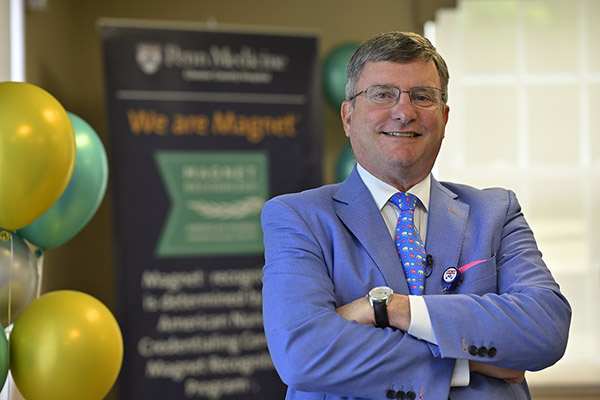
Dear Friends and Donors,
Years ago, I read the famous business book, The 7 Habits of Highly Effective People. Well, candidly, I only read the table of contents which told me what I wanted to know – what the seven habits were. Through the fog of life, the one that stuck with me was: "Begin with the End in Mind". All of us do this naturally when we take a trip. We start with "Where do we want to go?"...then, we make plans for how to get there.
I found it is a good principle for business and life. For example, in the Summer and Fall of 2011, the Chester County Hospital Management Team and the Board asked, "Where do we want to be as a hospital in a decade to best serve the needs of our community?" Our conclusion was we would ultimately need a $300 million expansion and convert to all private patient rooms. With that as our goal, it framed what activities we had to engage in to accomplish our goal. The story about how we worked our way through that is interesting, but too long for this article. Ultimately, it led us to join Penn Medicine, increasing our access to top-tier clinical excellence, while preserving the deeply respected culture we have built here at Chester County Hospital.
More recently, I asked myself this same question, both professionally and personally. At this stage of life, what did I want to ensure was my "end in mind" focus? Professionally, I want to raise philanthropy by meeting with old friends to support an expansion of the cancer center with an integrated breast health center. More personally, since I have such fond memories of my grandparents playing a major role in raising me, I wanted to be free to pour my love into our grandkids just as I had received as a child.
So far, since I transitioned from CEO of Chester County Hospital to President of The Chester County Hospital Foundation, my days have been filled with a mix of fundraising conversations with supportive community members, playing many games with my grandchildren, and soaking up their endearing perspectives on the world. Spending time with them and embracing their loving hugs at the end of the day gives me a deep sense of satisfaction to have these experiences.
Many of you have followed this same principle, by supporting The Chester County Hospital Foundation for many years, including those who have planned further ahead by including us in their estate planning. I am deeply grateful for your support on this important journey. You have helped us build a hospital that has ranked in the Top 100 Hospitals in the country for seven years in a row.
Once again, we are "beginning with the end in mind" as we continue to expand to meet the growing healthcare needs of our community. There is much more work to be done to bring even greater possibilities and world-class care to our patients throughout all the communities we serve. I'm grateful to be in a role where I can continue to support that journey. I ask you to consider how you also want to support that journey.
Warm Regards,
Mike